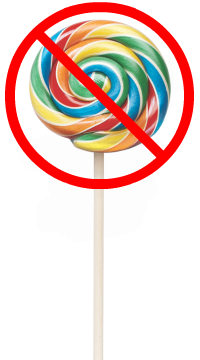 Do you want to live longer? With a higher quality of life? Business is booming around longevity products and ideas, and it will continue to do so because most people want to live longer. You can expect to see more and more advertisements and promotions, but are any of them actually useful? Maybe. Maybe not. Let’s take a closer look at one of these ideas.
Do you want to live longer? With a higher quality of life? Business is booming around longevity products and ideas, and it will continue to do so because most people want to live longer. You can expect to see more and more advertisements and promotions, but are any of them actually useful? Maybe. Maybe not. Let’s take a closer look at one of these ideas.
There are a lot of ‘tricks’ to prolong a healthy life, and one of them has to do with calories. But what is a calorie?
The word ‘calorie’ seems to be one of the most popular words in the English language these days. Everyone uses it, and it is everywhere in marketing and advertising, mostly for weight loss. But do people really understand what it means? And how it relates to nutrition?
Before you continue reading, let me tell you that this article is not about counting calories to lose weight or live longer. Far from it, I am here to tell you that counting calories is not only meaningless, but detrimental to your health. However, I will explain to you how eating ‘right’ will indeed reduce calories and lead to both weight loss and longevity. Read on to see how calorie restriction is an end, not a means…
DEFINITIONS
A calorie is the amount of energy needed to raise one kilogram of water by one degree celsius. That is it. It is an energy measurement. Very simple. But when you connect the idea to food it becomes a little bit more complicated because you must understand what provides that energy from food. Let’s take a closer look and illuminate some secrets to healthy eating…
Most people probably view calories as fuel, and that is a good analogy. And most people probably know that this fuel comes from carbohydrates (includes sugars) and fats (includes oils). So far so good. But are carbs and fats the only fuels for humans? Or they the only source of calories? No. Proteins also include calories.
| Macro | Cal/gm | %Used |
| Fat/Oil | 9 | 2-4% |
| Carbs | 4 | 6-8% |
| Protein | 4 | 25-30% |
Macronutrients for humans are most often defined as proteins, fats, and carbs. It is a useful and convenient definition. Notice that all 3 components are part of your nutrition, and all three parts provide calories (fuel). However, those calories are all very different.
You see that % Used column? That shows the thermic effect, which is how much energy (calories/fuel) is needed to process that macronutrient on average. It shows that fats are the most efficient fuel by far. Quality fats are also carrying a lot of other valuable nutrition, and this is why healthy humans throughout history have consumed anywhere from 30-8o% of their calories as fats. The idea of modern diets that cut fats far below 30% is dangerous and… fattening 🙁 If you really want to lose fat, eat more quality fats!
Nutrition is usually used to represent the ‘positive’ or ‘useful’ elements of food – vitamins, minerals, and little else. This is actually a very useful and convenient definition. But that definition is very subjective, as not everyone (including scientists) agrees on what is positive or useful.
Other times the word ‘nutrition’ is used by its more accurate meaning – nutrition is anything that nourishes the body. Nutrition is what your body needs to survive. Thus, even air and water fall under the more technically correct definition; however, that also becomes more confusing and less useful. For our purposes in this article we will mostly be sticking with the limited and more popular definition of nutrition.
 To highlight the idea of nutrition that is most often used, let’s examine the common expression “empty calories.” This is a very useful expression that is handy to highlight foods that give us calories, but not much (other) nutrition. Sugary things such as a lollipop are an example of empty calories… nothing of benefit except the fuel that they supply as sugar. But even that fuel is not of much benefit, because it is not a quality fuel…
To highlight the idea of nutrition that is most often used, let’s examine the common expression “empty calories.” This is a very useful expression that is handy to highlight foods that give us calories, but not much (other) nutrition. Sugary things such as a lollipop are an example of empty calories… nothing of benefit except the fuel that they supply as sugar. But even that fuel is not of much benefit, because it is not a quality fuel…
QUALITY
Getting back to the calories=fuel analogy, it is important to realize that the quality of the fuel has a big impact on the engine that burns it. Just like a car engine, if you put dirty fuel into your body, you can damage it. Thus, it is best to put only the highest quality, cleanest burning fuel into your body.
PURPOSE
In addition to quality, there are the different ‘types’ of fuel (calories) that your body needs for different purposes. We have many different fuels for the many different engines in cars, planes, etc, and our body too has many different engines within it.
In recent years there has been a big movement in ketogenic diets, as people are becoming more and more aware of our body’s ability to burn fats instead of carbs for fuel. This is a much ‘cleaner’ burn, and is in fact a part of our normal daily functioning… if… and that is a big if… our body is functioning normally. In modern times we have loaded our body with so many carbs that many people do not go into the normal ketogenic state as often as they should. (This natural state actually varies greatly by diet, which can vary greatly by season and geography).
If you are an Eskimo, your diet probably has zero carbs and 80% fats, and you are probably in constant ketosis. People in the tropics will consume more carbs, but even then they will still get at least 30% of their calories from fats… if they are eating the way healthy humans have eaten for countless millennia. And that is the key… you simply need to eat the way a human is supposed to eat, and has been eating for hundreds of thousands of years.
Why a Calorie is not a Calorie
There is a nice article on Healthline titled ‘6 Reasons Why a Calorie is Not a Calorie‘ and I think it is an easier read than what I have written here. Here is a summary from that article of why a calorie is not a calorie:
- The type of calorie. He focuses on glucose vs fructose as an example, but it is much more complicated than that.
- Thermic Effects. How efficiently can our body take in that calorie? This is explained nicely in her article, and I also listed that in my table above.
- Protein kills apetite. A bit controversial here, but still true to some extent. I am not advocating a high protein diet, but am rather pointing out the impact of consuming different kinds of calories. Fats and proteins are more satiating.
- The Satiety Index. This is really an important key. When our body feels satiated we will naturally consume less. Eating nutritionally dense foods will satiate you. I highlight this in my article 20 lbs. in 3 Months?
- Low-Carb diets automatically lead to calorie restriction. Similar to points 3 and 4, we simply eat less calories when we consume a low-carb diet… which means we are consuming a high fat diet.
- The Glycemic Index. Similar to point 1, so a bit redundant; however, still a valid point.
There are more than six reasons, but those are the ones highlighted in the article I referenced. I’m just using this to make my point – calorie sources in food are complicated, and there is no actual need, and no simple way to count them. You’ll notice more in the long technical articles from the Weston A. Price Foundation, ‘Adventures in Macro-Nutrient Land‘.
So, in short, here is the thing… if you want to live longer and healthier, find the most nutrient dense food that you can, and stop counting calories. If you consume clean nutrient dense food you will automatically reduce your calories; as well as reducing your toxic intake and overtaxing your body in digesting all that extra food that you do not really need.
Once again I will leave you with a proper food pyramid…

Another nice reference is here.








